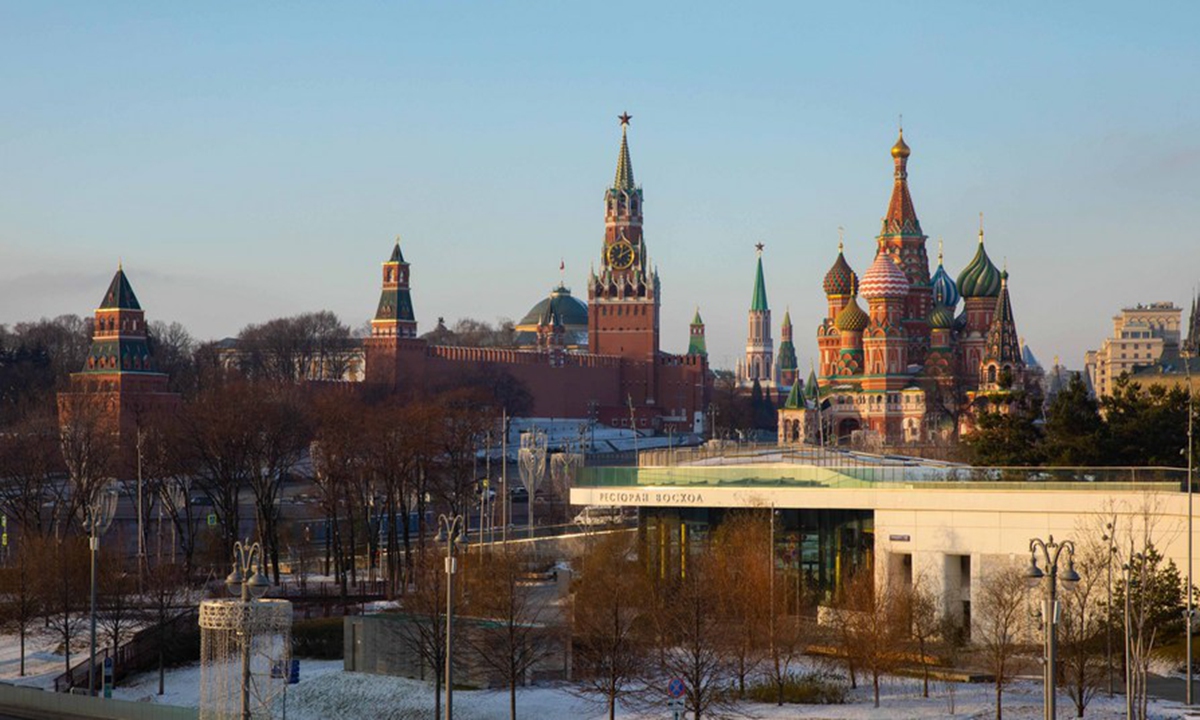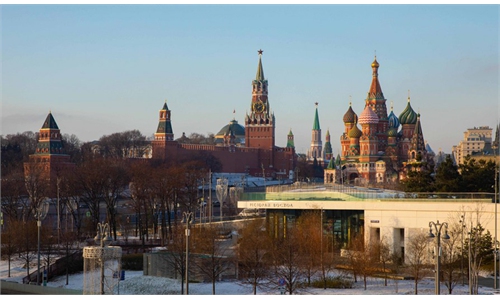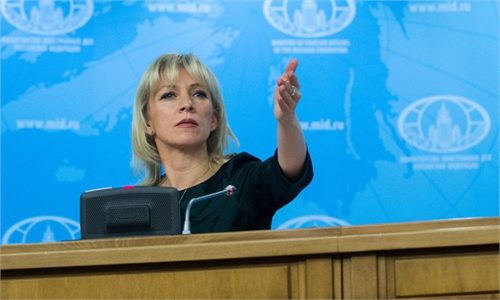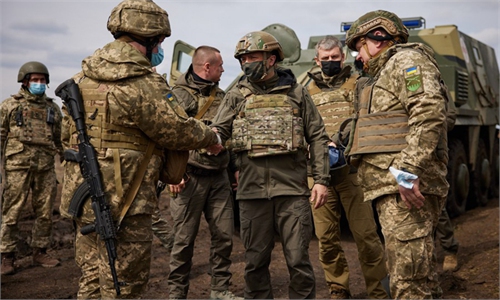
Photo taken on Dec. 2, 2020 shows the Saint Basil's Cathedral and the Kremlin in Moscow, capital of Russia. (Xinhua/Bai Xueqi)
Since the beginning of 2021, the ceasefire in the Donbass region of Ukraine has been broken. Both Ukraine and Russia have been increasing their military presence along the border. The possibility of an outbreak of unintended incidents is rising. Against this backdrop, voices that demand Ukraine to quickly join the NATO are emerging. Yet will NATO dare to expand its presence on the doorstep of Russia?On April 6, Ukrainian President Volodymyr Zelensky said NATO's military presence in the Black Sea region would be "a powerful factor for deterring Russia," and that Ukraine's membership of NATO was the only means of ending the war in Donbass. On April 9, Russian Foreign Ministry Spokeswoman Maria Zakharova stated that Ukraine's potential accession to NATO would lead to a large-scale rise in tensions and irreversible consequences for Ukraine's statehood.
It can be argued that warming ties between Ukraine and NATO will lead to the deterioration of Europe's geo-security environment. This will further escalate military confrontations between Russian and the NATO.
Ukraine has been proactively seeking to join the NATO since 2014, and the country has been treating Russia as an "aggressor" due to the Crimean crisis and Donbass conflicts. Ukrainian scholars tend to believe the US-led NATO is the only group that can confront Russia. Nevertheless, NATO members are having different opinions about absorbing Ukraine into the alliance. Some of them from Central and Eastern Europe fear Russia. Some NATO members are also major providers of military equipment assistance to Ukraine. Frankly speaking, they would rather take Ukraine as a buffer zone between themselves and Russia.
Since US President Joe Biden entered the White House, the situation in Ukraine has once again become a hot-button issue between Moscow and Washington.
On March 1, the Pentagon announced a $125 million military aid package for Ukraine. Biden has also been strengthening cooperation with US allies, drawing more NATO members over to contain Russia. This year, NATO has also been increasing its military presence in the Black Sea region.
On March 15, the US-led NATO exercise, known as "Defender Europe," kicked off in the Balkans and Black Sea regions. It saw 28,000 troops from 27 countries participate in the drills. These actions might bring the military tensions back to the Black Sea - akin to Cold War era atmosphere.
Russia, as a traditional military power, pays special attention to the geo-security environment of its surrounding areas. Since Joe Biden assumed power, Moscow has attached far more importance to the security environment in the west. In the context of deteriorating Russia-US relations, maintaining the stability of the situation in Ukraine is directly related to the security of western Russia. This will also clearly affect the stability of the post-Soviet Union region. Facing NATO's mounting influence in Ukraine, on multiple occasions the Kremlin has expressed concerns over the possibility of NATO expanding its military bases to Russia's border. It has warned that NATO membership for Ukraine would cross Russia's red line.
Historically speaking, Ukraine was regarded by Russia as its closest Slavic brother. For Moscow, Ukraine is a fond historical memory, representing the glory of the Russian Empire and Soviet Union. After the disintegration of the Soviet Union, Moscow lost its super power status and had one more "enemy." After the outbreak of the Color Revolution, Ukraine proactively asked for membership in both the EU and NATO. From the geopolitical perspective, with NATO constantly eroding Russia's geopolitical space, the shadow of Cold War still lingers between Russia and NATO. Russia views NATO as its biggest security threat. Therefore, Ukraine's desire to join NATO is an unbearable pain for Russia.
Ukraine has actively approached NATO since its independence and is seeking NATO membership. But the Crimean crisis and Donbass conflict are "hot potatoes" for NATO. There is an unspoken rule for NATO: Countries with territorial disputes are not allowed to be a member. It's obvious that Ukraine's territorial disputes will be difficult to resolve in the short term. Therefore, although NATO and Ukraine have many common interests, there are obstacles preventing the former from truly accepting the latter. It's fair to say this: Kiev has many hard yards to go before getting NATO membership.
The author is an associate research fellow at the Institute of Russian, Eastern European & Central Asian Studies of the Chinese Academy of Social Sciences. opinion@globaltimes.com.cn



